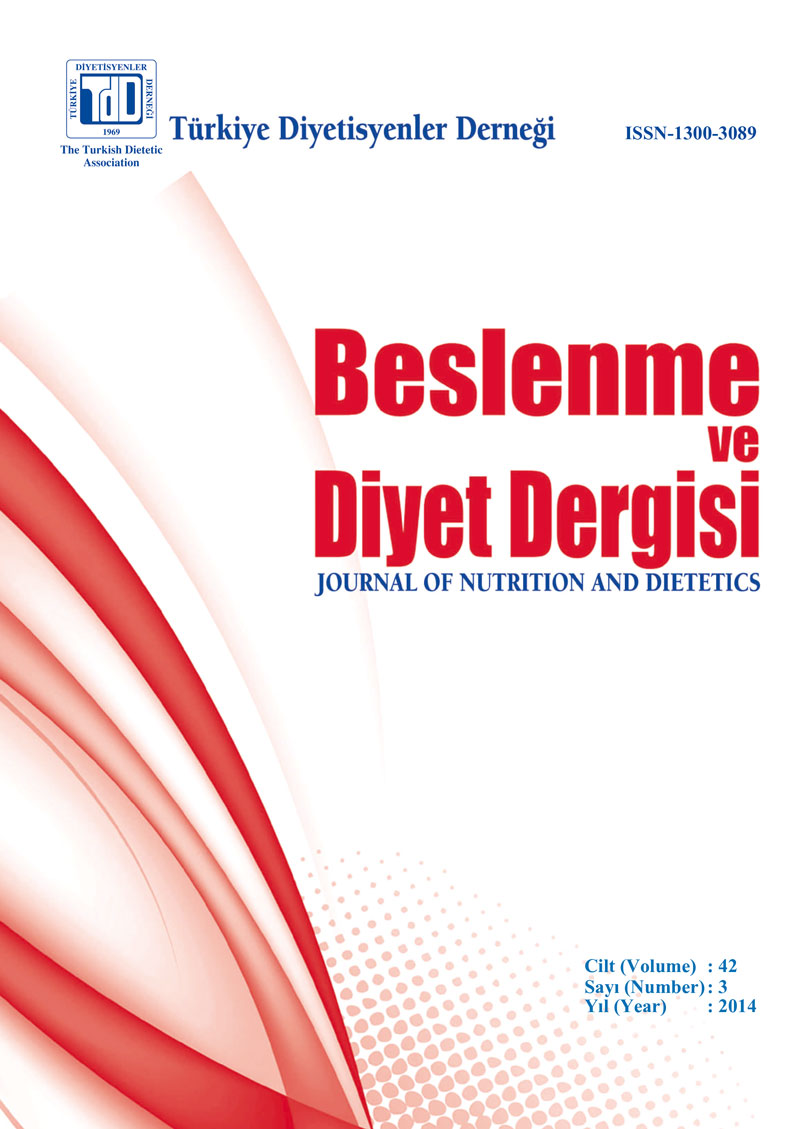Determining the State of Obesity of the Individuals Admitted to Zekai Tahir Burak Hospital of Çayyolu District
Keywords:
Obesity, adultsAbstract
Aim: This study is planned and conducted with the purpose of addressing the obesity prevalence which is observed in adult applicants of Dr. Zekai Tahir Burak Women Health Training and Research Hospital (ZTB) Cayyolu District Polyclinic Dietetics Department and of considering possible solutions. Subjects and Methods: The study included 1.000 individuals, 59 males and 941 females aged 18-70 years, who admitted to Zekai Tahir Burak Çayyolu District Polyclinic Nutrition and Dietetics Unit and 200 of whom returned for control examination. The demographics and dietary data were provided from the patients who volunteered for the study. For the facts which are statistically discrete, number (%) is used. Results: Totally 94.1% of the individuals who participated to the study are females and the remaining (5.9%) are males. Among the males, 68.8% of them, and 80.6% of the females are between 26-65 years old. Out of total 62.8% of the males and 44% of females are university graduates and 20.3% of males and 25.3% of females are high school graduates. 47.5% of the males and 38.0% of the females are overweighted and 42.4% of the males and 44% of the females are obese, 40.6% of the males and 53.8% of the females got a weight-reducing diet. 18.1% of the males and 30% of the females got a low-fat diet. It was mentioned that males average diet duration is 34 days. They lose 126 grams/day and overall they lose average 3515 grams. The body mass index (BMI) loss is 1.2 kg/m2 on the average. Furthermore, females average diet duration is 46.5 days. They lose 101 grams/day and overall they lose average 3402 grams. The body mass index (BMI) loss is 1.3 kg/m2 on the average. Conclusion: It can be inferred from the study conducted that for males, it is easier to lose weight than it is to females. However, females lose more BMI than men. Also, females are more consistent and eager to lose weight than males. Moreover, people who visit the dietitian more, lose more weight than the ones who do not.

